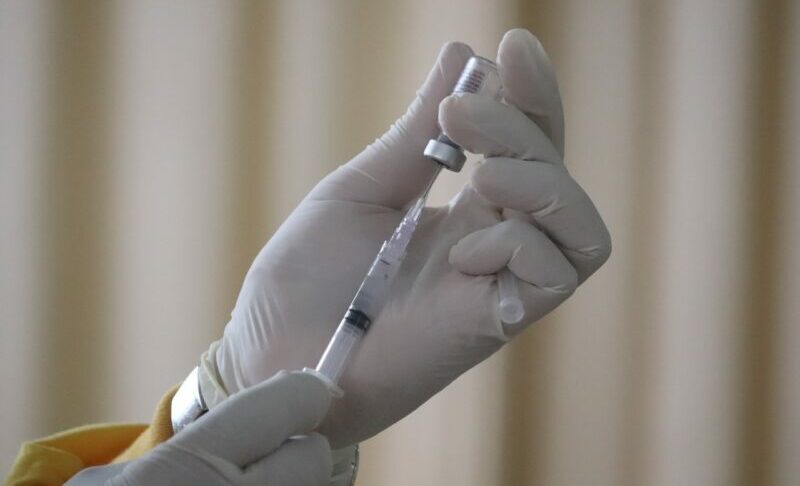Stephen's recent articles

11 April 2025
If I were health minister…
Ministerial time is a scarce commodity. Hence setting priorities is critical. But, unfortunately, the minute I walk into my new office I will be assailed by the smell of a dead cat on my desk emanating from a stack of briefs on private sector issues.

12 December 2024
Addressing misdiagnoses and gaps in Australia’s COVID-19 inquiry
The national report on Australia’s COVID response is long, at 877 pages (depending upon the format), with 4,647 footnotes. But long is not synonymous with comprehensive, and there are significant gaps in the report’s analysis and conclusions.

4 April 2024
Commonwealth-State health reform: Its time for a conversation about national priorities
The prospects for significant health reform looked good at the end of 2023. A mid-term review of the main Commonwealth-state agreement the National Health Reform Agreement (NHRA) had recommended that the focus of a new agreement, due mid-2025, should be broader than public hospital funding. States seemed to be on board and the Commonwealth put big money on the table at the National Cabinet meeting on December 6.

31 January 2024
Medicare turns 40: since 1984 our health needs have changed but the system hasnt. 3 reforms to update it
Forty years ago, Medicare as we know it today was born. It was the reincarnation of the Whitlam governments Medibank, introduced in 1975 but dismantled in stages by the Fraser Liberal government.

11 January 2024
Proposed new Aged Care Act leaves gaps in rights
The current Aged Care Act, dating from the Howard Government era and infused with its neo-liberal ideology, is set to be repealed and replaced by a new one, purportedly incorporating a rights basis as recommended by the Royal Commission on Aged Care Quality and Safety which reported in 2021.

9 November 2023
Medicare is changing for the better
Last week another important suite of changes to Medicare came into effect. Since the election of the Albanese government, we have seen a willingness by government to introduce a range of policies designed to update and strengthen Medicare to position it better for the future.

29 October 2023
New data shows the Commonwealth Government is not pulling its weight on hospital funding
The Australian Institute of Health and Welfare released its latest health expenditure data last week showing the Commonwealth share of government public hospital funding has declined to 41%. This will fuel state anger and make negotiations for a new funding agreement, to take effect in mid-2025, that much harder.

10 May 2023
Health budget has big changes reviving our worn-out Medicare fee-for-service system and boosting bulk billing
There were four major changes forhealth care in the 2023-24 budget: prioritising primary care, funding to strengthen Medicare, cheaper access to common medicines, and new funding to keep the digital health system going. Many of these changes wereforeshadowed in recent weeks.

12 April 2023
What if Medicare was restricted to GPs who bulk billed? This kind of reform is possible
Australias health system is under significant pressure. The Labor government has inherited a system with declining bulk-billing rates for GP visits. These fell from almost 90 per cent of all GP attendances bulk billed in December 2021 to just over 80 per cent a year later.

16 February 2023
Reforms and more funding needed to save Medicare
The release of the Strengthening Medicare Taskforce report has re-ignited discussions about reform of Australias primary healthcare system.

6 February 2023
Commonwealth-State cooperation is essential for healthcare reform
The recommendations of the Strengthening Medicare Taskforce released last week, like almost any serious health reform in Australia, require joint Commonwealth and state action.

25 November 2022
Your Medicare card: the Whitlam government's contemporary legacy
On December 2 we celebrate the fiftieth anniversary of the election of the Whitlam government. Health reform was one of that governments signature achievements. It appears that the stars are now aligning to build on Whitlams remarkable legacy and create a new Medicare fit for purpose in the 21st century.

28 July 2022
Will 2022 be the year primary health care takes a step up?
One thing primary care has a lot of is reports about reform. But despite a significant investment in reviews, consultations, and paper over the last five years, not a single cent has been invested in transforming these words on paper into policies which benefit patients and practitioners. Even though the previous governments ten-year primary care strategy was released on Budget night, no dollars were allocated for implementation.

11 May 2022
What I would do if I were the Minister for Health and Ageing in the next government
A new minister in any portfolio has two tasks: fix the past and fix the future.

18 January 2022
How to learn from our Covid history (no, not with a royal commission)
What we have learnt from decades of experience about analysing what to do when things go wrong in healthcare should be applied to public health too.

5 January 2022
Act now to overcome the Commonwealth litany of failure on COVID
The Commonwealth has learned nothing from this litany of previous mistakes and continues to ignore lessons learnt from overseas.

11 September 2021
NSWs reopening plan is risky, and signals an end to a national approach
By abandoning the national plan, NSW's gamble to go it alone on easing restrictions for fully vaccinated people further fractures federalism... NSW initially locked down too little and too late.
28 August 2021
Stakeholder voices in health policy
Formulation of COVID policy, as with other aspects of health policy, has involved stakeholders voicing their opinions about whats in Australias best interest. Or at least, that is how their lobbying is framed.
26 August 2021
Opening with 70% of adults vaccinated, the Doherty report predicts 1.5K deaths in 6 months. We need a revised plan
One consequence of the escalating COVID outbreak in New South Wales has been increased political tension around the national plan for COVID reopening.

7 July 2021
When should mandatory vaccination be on the agenda?
Back in August 2020, when announcing that Australia had negotiated a deal to procure supplies of coronavirus vaccines, the Prime Minister was quizzed by Melbourne radio commentator Neil Mitchell about whether vaccination should be compulsory. The PM hedged his bets he would expect it to be as mandatory as you can possibly make [it]. Fast forward almost year and national cabinet recently started down the compulsion path mandating vaccinations for residential aged care workers.
23 June 2021
Financial penalties for avoidable hospitalisations.
The 2020-25 Commonwealth-state hospital funding agreement requires the Independent Hospital Pricing Authority to consider penalties for excessive rates of potentially preventable hospitalisations. The new penalty would sit alongside existing penalties on states with higher-than-expected rates of adverse events in hospitals.
24 May 2021
Wherenext for private healthcare?
The future of private health in Australia both private hospitals and private health insurance is under challenge. The proportion of the population with insurance has declined over the past decade. The insured population is getting older, which is putting upwardpressure on insurance premiums, which leads to more people dropping out, especially younger people, creating a death spiral. Statistics released by the insurance regulator last week confirm that trend continues.
17 May 2021
Prosthesis pricing is a dead parrot
Hidden in the 2021-22 Budget papers was an announcement that the government had squibbed an opportunity to reduce private health insurance premiums by ending a protection racket involving private device manufacturers and importers, and private hospitals.
9 May 2021
What do we get for the millions spent on COVID consultancies?
Australias COVID-19 vaccine rollout is not just a shambles, its an expensive shambles. The program is so bad that government has given up on setting meaningful targets and has now redefined target setting to when an activity starts, rather than when it finishes.
25 April 2021
The critics are wrong: Australia needs a universal aged care system
The Royal Commission into Aged Care Quality and Safety has envisioned a new aged care system that would deliver an entitlement to high-quality care and support for older people, and ensure that they receive it. Its a call for sweeping change.
17 February 2021
Penny wise, pound foolish: the federal government must step up on hotel quarantine
Our biggest weakness in protecting the community from Covid-19 remains a hotel quarantine system that demonstrably is not fit for purpose. Heres how to fix our quarantine system once and for all.
27 October 2020
No one else in the world has tamed a second wave this large like Daniel Andrews (The Conversation Oct 26, 2020)
If the past few months have been like a long-haul flight, Victorians are now standing in the aisles waiting for the cabin door to open, a little groggy and disoriented but relieved. They have every right to be. No other place in the world has tamed a second wave this large. Few have even come close.
12 October 2020
Residential aged care funding rules are unfair and inefficient
The Royal Commission into Aged Care Quality and Safety has highlighted the tragic weakness of residential aged care throughout Australia. Hundreds of older Australians have died prematurely during the COVID pandemic. For their sake, and ours, this tragedy must prove to be the wake-up call that prompts a major shakeup of the industry.
3 September 2020
Victoria should stay the course
Victoria is now facing a difficult choice: to continue stringent lockdowns in the hope of getting COVID-19 cases down to zero, or accepting the lesser goal of opening up once cases are in single digits.
11 June 2020
Australias COVID-19 response Part 2: The four successes and four failures
Australias response to coronavirus to date has been among the most successful in the world. After an exponential increase that peaked at more than 400 cases a day in late March, daily cases declined to about 20 a month later, with some states recording several successive days or weeks with no new cases. At the same time, rapid growth in infections in almost every other comparable country threatened to overwhelm their health systems.
10 June 2020
Australias COVID-19 response Part 1 of 2: the story so far
Australias response to the COVID-19 pandemic has been remarkably successful. After an exponential increase that peaked at more than 400 cases a day in late March, daily cases declined to almost zero a month later.
7 June 2020
PETER BROOKS, STEPHEN DUCKETT and BRIAN OLDENBURG. Telehealth and digital health navigators a bright future.
Telehealth is not new in Australia but Covid -19 and the new Medicare item numbers have stimulated its rapid adoption across the country. It is clear patients like it. They do not need to expose themselves to potentially dangerous environments such as hospitals and clinics. It saves them time whether in rural or urban environments and it delivers care and patient education, in their own environment.
21 May 2020
IAN HICKIE and STEPHEN DUCKETT. Mobilise private resources to cope with the COVID-19 mental health wave
The public-private divide in Australias health system disappeared early in the Coronavirus pandemic when all states signed contracts with private hospitals to ensure private beds were available to meet the anticipated tsunami of hospital demand. The same can do approach is now urgently required to respond to the second COVID-19 curve, namely the predicted increase in mental ill-health, self-harm, and suicide.
15 May 2020
STEPHEN DUCKETT supports Pearls and Irritations.
I am both a daily reader of, and a contributor to John Menadues Pearls & Irritations.
20 April 2020
ADAM ELSHAUG & STEPHEN DUCKETT. Hospitals have stopped unnecessary elective surgeries and shouldnt restart them after the pandemic (The Conversation 16.4.20)
Part of Australias response to the coronavirus pandemic was a severe reduction in elective surgery, and so private hospitals have stood almost empty for a month now.
2 April 2020
STEPHEN DUCKETT, ANIKA STOBART, WILLMACKEY.- If coronavirus cases dont grow any faster, our health system will probably cope (The Conversations 1.4.2020)
The growth in COVID-19 cases in Australia appears to have slowed across all states, through a combination of tighter border control and spatial distancing.
9 October 2019
STEPHEN DUCKETT. Time to kill the Private Health Insurance zombies
Two zombie policies stalk the Private Health Insurance (PHI) policy world: A Hospital Benefits Schedule and Medicare Select. Heres why both should have been put to rest long ago.
15 July 2019
STEPHEN DUCKETT. Private health insurance needs a rethink
Australians are dissatised with private health insurance. Premiums are rising and consumers are dropping their cover, especially younger people, who are less likely to need health services. Those who are left are more likely to use services, driving insurance costs up further. Government subsidies for private health insurance and private medical care currently running at more than $9 billion every year and nancial penalties to encourage people to take out private insurance are becoming less effective. The industry fears a death spiral.
20 December 2018
STEPHEN DUCKETT. Morrisons health handout is bad policy (but might be good politics) (The Conversation).
The A$1.25 billion Community Health and Hospitals Program Prime Minister Scott Morrison announced this week should be awarded a big policy fail.
10 December 2018
STEPHEN DUCKETT. Activity-based funding and prevention: a message for state governments (Croakey)
JENNIFER DOGGETT. Keeping people well and out of hospital should be a primary focus of our health system. Yet the evidence is that we could do much better in preventing and managing problems in the community, before they require hospital treatment. In the post below, Professor Stephen Duckett,Health Program Director at the Grattan Institute, provides some useful advice to state/territory governments on how to focus own hospital avoidance without losing funding under the current activity-based system.
22 November 2018
STEPHEN DUCKETT. The tooth hurts but Victorias public dental system is broken (Grattan Institute).
Our dental care system is not working for a lot of Victorians. More thanhalf a million Victorians say that the cost of dental care stopped them from getting care when they needed it in the past 12 months.
23 August 2018
STEPHEN DUCKETT. A hospital win-win: improving care and saving money.
Every day we hear stories about innovation in health care new drugs, new machines and new tests that will help us live longer. We have got used to thinking that any improvements in health care will come at a price often a big one, given the years of development and testing needed to bring the innovation to market.
13 August 2018
Time to name and call out unconscious racism in the treatment of Indigenous Australians
Indigenous Australians suffer racism when they seek or require medical treatment. The good news is that the medical profession acknowledges there is a problem. The bad news is that doctors are not doing nearly enough to bust the systemic bias against our First Peoples.
15 May 2018
STEPHEN DUCKETT. Turnbull government backs pharmacies over consumers, yet again.
The government has totally squibbed the latest pharmacy regulation review, and consumers will be the losers. Every five to 10years in Australia, the government establishes a review of the regulations governing pharmacies. Those reviews invariably come to the same conclusion: community pharmacy is over-regulated, and a reduction in regulation would benefit consumers. Just as invariably, the government response is to do nothing.
6 February 2018
STEPHEN DUCKETT, CHRISTINE JORM AND GREG MORAN. Hospitals are risky places but some are better than others
One in every nine patients who go into hospital in Australia suffers a complication: when something preventable goes wrong with their care. They might develop an infection from a hygiene breach, for instance, or be given the wrong dose or type of drug.
26 October 2017
STEPHEN DUCKETT. Assisted dying is one thing, but governments must ensure palliative care is available to all who need it
The debate in the Victorian Parliament about assisted dying has tended to focus on the terrible personal experiences of deaths of family members. That focus is understandable, but it has been at the cost of consideration of the need for much more attention to the need for better palliative care.
16 August 2017
STEPHEN DUCKETT. Why it costs you so much to see a specialist and what the government should do about it
Australians pay too much when they go to medical specialists. The government can and should do more to drive prices down. A current Senate Inquiry on out-of-pocket costs will hopefully lead to some policy action.
17 March 2017
STEPHEN DUCKETT. Labor charts a health policy rethink
The Labor Party has released a summary of the proceedings of its National Health Policy Summit, held in Canberra on 3rd March. Good on the ALP for holding the summit. Trouble is, the communique, while summarising the views of the quite diverse range of participants, gives no clear indication of where Labor might be heading.
30 December 2016
HAL SWERISSEN and STEPHEN DUCKETT. Is a tax on sugary drinks bonkers?
The evidence is that currently there are significant harms and costs associated with the consumption of sugary drinks, both to those who are obese and the community more generally.
23 October 2016
STEPHEN DUCKETT. Blood money: pathology cuts can reduce spending without compromisinghealth
In the coming weeks I will be posting articles on the high costs and corporate nature of pathology in Australian. The following article by Stephen Duckett in The Conversation, even though posted in February this year, helps set the scene. John Menadue The Mid-Year Economic and Fiscal Outlook (MYEFO) set the cat among the pathology pigeons late last year. One of the governments flagged changes, estimated to save around A$100 million a year, was to abolishthe bulk-billing incentive Labor introduced in 2009.
Showing 50 of 53 articles
